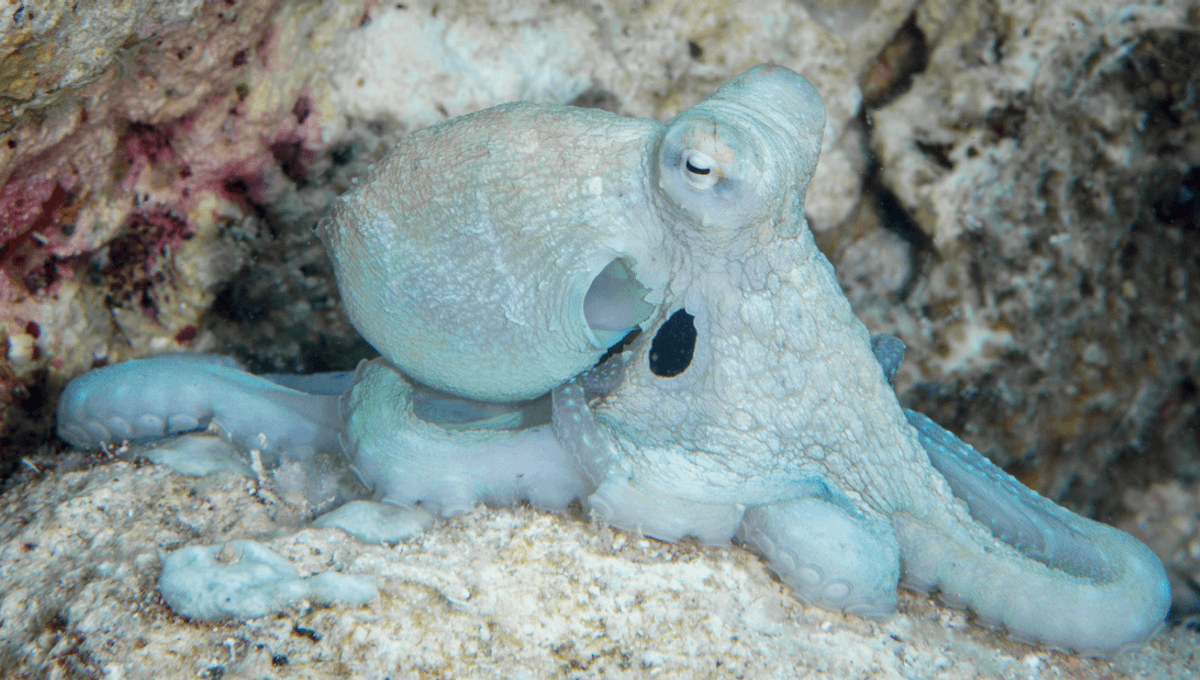
Scientists have been able to peer inside the brains of freely-moving octopuses for the first time thanks to a new approach that uses an implanted device. The resulting recordings revealed several distinct patterns of activity in the brain, with some mirroring states observed before in mammals while others looked totally alien.
Studying free-moving octopuses is exceptionally difficult owing to the fact that they have eight arms that can access 100 percent of their bodies. This means if you try simply attaching some kit, their arms will make quick work of ripping it all off again.
To overcome this, researchers created a waterproof device that could be implanted inside octopuses, with electrodes reaching the vertical lobe and median superior frontal lobe. These regions are of particular interest for brain research as it’s thought to be responsible for visual learning and memory, which is what first author on a new paper, Dr Tamar Gutnick, and colleagues at the Physics and Biology Unit at the Okinawa Institute of Science and Technology (OIST), were hoping to investigate.
“If we want to understand how the brain works, octopuses are the perfect animal to study as a comparison to mammals,” Gutnick explained in a statement. “They have a large brain, an amazingly unique body, and advanced cognitive abilities that have developed completely differently from those of vertebrates.”
That octopuses have evolved such a high level of intelligence despite being so evolutionarily distant from other smart animals, and having grown up in an alien underwater world, has actually made them the subject of astrobiology research (something we explore in the March issue of CURIOUS, IFLScience’s free e-magazine, which you can receive February 26 if you subscribe).
For their deep dive into octopus brains, Gutnick and colleagues performed procedures on anesthetized octopuses to insert the implants which could then record 12 hours of data. The octopuses took about five minutes to recover and then proceeded to sleep, eat and move around, all the while having their brain waves recorded by the implanted device.
The results showed distinct patterns of brain activity, some of which appeared similar to those seen in recordings taken from mammals. However, there were other patterns that have never been described before made up of very long-lasting, slow oscillations.
“This is a really pivotal study, but it’s just the first step,” added Professor Michael Kuba, who led the project at the OIST Physics and Biology Unit and now continues at the University of Naples Federico II. “Octopus are so clever, but right now, we know so little about how their brains work. This technique means we now have the ability to peer into their brain while they are doing specific tasks. That’s really exciting and powerful.”
The study was published in Current Biology.
Source Link: Scientists Just Discovered New Patterns Of Brain Activity In Freely-Moving Octopuses